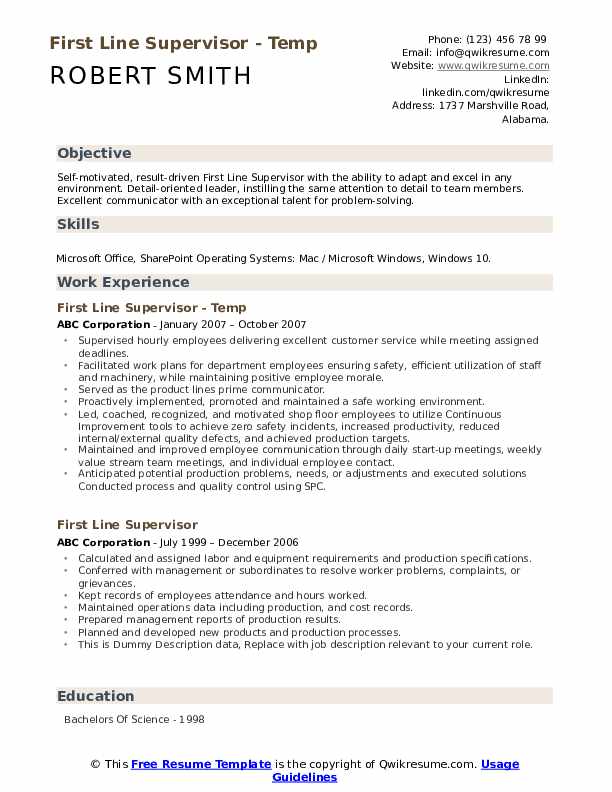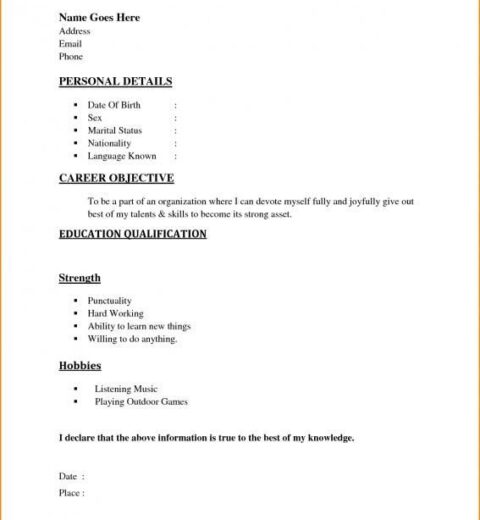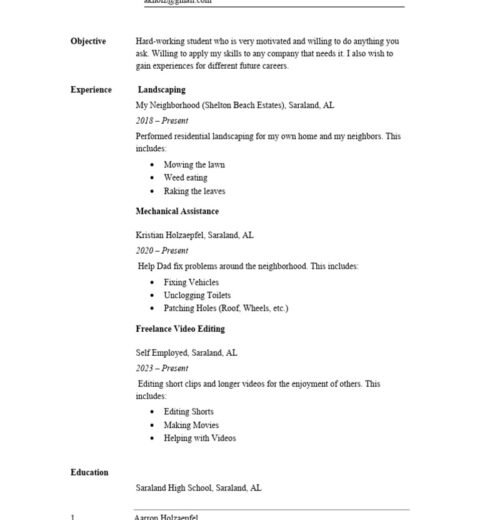The first line of a resume serves as a critical point of contact between a candidate and potential employers. It is not merely a formality; rather, it is an opportunity to distill one’s professional identity into a compelling statement that captures attention. In the ever-competitive job market, where hiring managers sift through stacks of applications, crafting an engaging opening line can serve as a catalyst that propels a resume to the forefront of consideration.
To understand how to start a resume effectively, it is essential to recognize the primary concerns of employers. Hiring managers are typical pressed for time and inundated with applications that often resemble one another in format and content. Consequently, they gravitate toward candidates whose resumes succinctly convey pertinent qualifications, experiences, and, perhaps most importantly, their unique value proposition. The initial statement must succinctly encapsulate not only the candidate’s skills and experiences but also hint at their personality and professional ethos.
As you embark on crafting this vital first line, consider incorporating action-oriented keywords that align with the specific industry and position being pursued. For instance, words like “driven,” “innovative,” and “strategic thinker” can contribute to an arresting opening while establishing a tone of confidence. Moreover, industry-specific terminology can demonstrate familiarity and expertise in the field, effectively signaling to employers that you are a well-versed candidate who understands the nuances of the profession.
It is equally important to personalize the opening line of your resume. Tailoring this statement to reflect the values and mission of the organization you are applying to can significantly enhance its appeal. Doing so not only portrays a genuine interest in the company but also illustrates that you have taken the time to research and understand its unique needs and culture. For example, if you are applying for a role at a company known for its commitment to innovation, starting with a statement that showcases your experience in pioneering projects would be especially advantageous.
Another prudent approach is to emphasize a noteworthy achievement or statistic within your opening line. Quantifiable accomplishments serve as compelling evidence of your capabilities and add authenticity to your claims. A succinct statement such as “Increased sales by 30% in one fiscal year while leading a team of five” is far more impactful than a general assertion of being a “results-oriented sales professional.” This technique not only hooks employers but also entices them to delve deeper into subsequent sections of your resume.
Consider the overarching structure of your resume as you craft that initial line. The first line should seamlessly transition into the following sections, acting as a thematic anchor for your professional narrative. Consistency and coherence throughout your resume enhance readability and retention. To maintain this structural integrity, ensure that each subsequent section—whether it focuses on work experience, education, or skills—supports and elaborates on the claims made in your opening line.
Furthermore, it is crucial to maintain a professional yet engaging tone. An overly casual or bland opening line can diminish the impact of your qualifications. Strive for authenticity while adhering to the conventions of business communication. For instance, a carefully articulated statement that reflects your personality and enthusiasm, such as “A passionate marketing strategist with a penchant for creative problem-solving,” effectively balances individuality with professionalism.
When contemplating how to initiate your resume, ponder on the multifaceted nature of your experiences. A compelling first line may highlight diverse elements of your background, weaving together skills from various domains. This strategy not only distinguishes you from competitors but also speaks to your versatility—a valuable asset in today’s dynamic work environment. A profound statement such as, “Bringing together analytical prowess and creative innovation, I excel at transforming data into actionable strategies,” showcases both sides of your skill set, engaging a wider audience.
As you refine your opening line, seek feedback from peers or mentors who can provide an objective perspective. Constructive critiques can illuminate potential weaknesses or areas for enhancement, leading to a more robust and impactful statement. Utilize their insights to iterate and polish your opening line until it resonates with clarity and authority.
Lastly, remember that your resume is a living document. As industries evolve and your career progresses, periodically revisiting your resume’s opening line to reflect new achievements or align with emerging trends is crucial. This practice ensures that your resume remains relevant and compelling in a fluctuating job marketplace.
In summary, the first line of a resume possesses unparalleled significance as it sets the tone for the entire document and influences the employer’s perception of a candidate. By addressing key employer concerns, infusing action-oriented language, personalizing content, and highlighting achievements, candidates can craft an exquisite opening line that not only hooks employers but also establishes a strong foundation for the remainder of their resume. Continually refining this element is essential for maintaining an engaging and relevant narrative that resonates with potential employers across varying industries.




